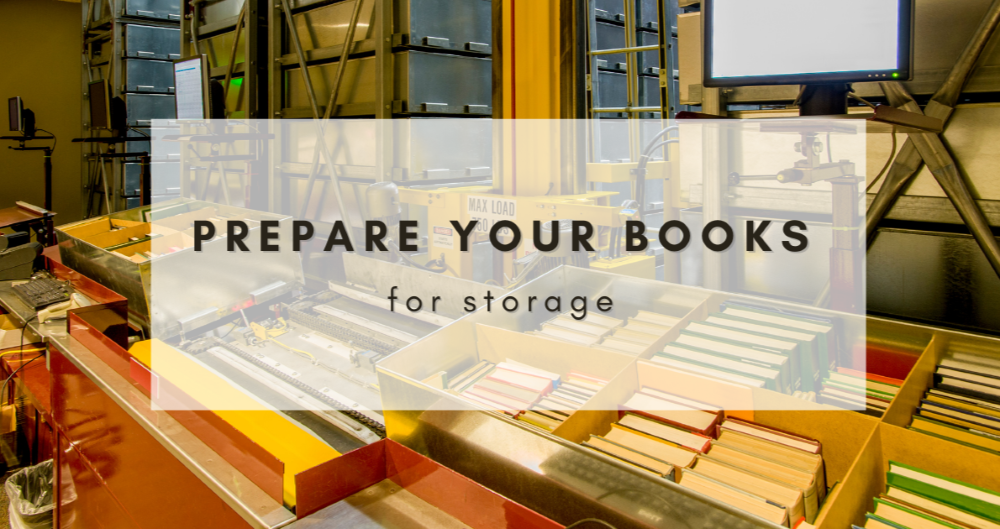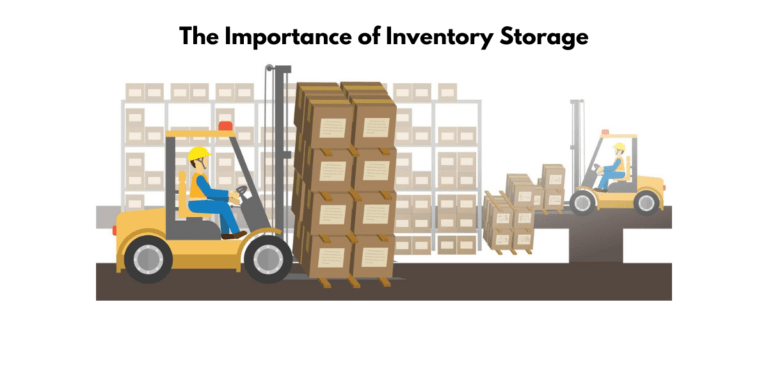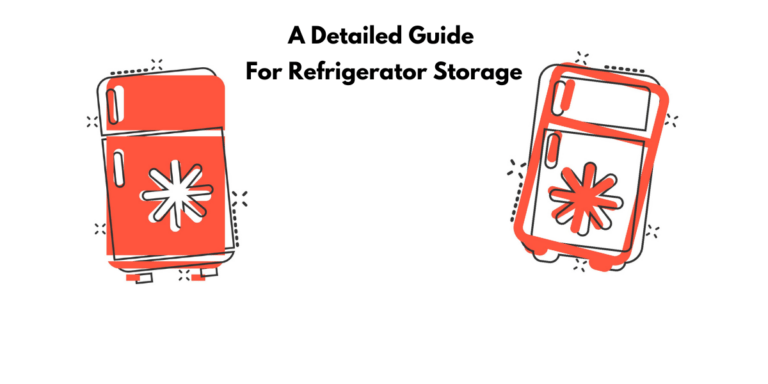How to properly store books and keep them protected in a storage unit
How to Store Books in a Storage Unit
Are you storing your books for long-term storage?
If the answer is yes, then this guide is for you.
This article will discuss the different storage units available, the best way to move books, and tips on preparing your books for long-term storage.
What are the factors to consider when storing books in a storage unit?
The list of factors to consider when storing books in a storage unit includes location, size, climate control, and security.
1. Space
To store books in a storage unit the best way, you need enough space to store books of all different shapes and sizes. You can store books in any house room, even the attic. Stacking books as high as you like will still fit in the storage unit.
2. Temperature
Temperature affects books and storage units in different ways. If you do not have a climate-controlled storage unit, try using silica gel packets to absorb moisture. If you use these methods, ensure the unit is kept at a consistent temperature between 55 degrees Fahrenheit and 85 degrees Fahrenheit.
3. Air circulation
Air circulation is important when storing books to avoid the risk of mildew and mold. By airing out the books beforehand, you can protect them from these pests. Additionally, baking soda can be used to eliminate strong scents if desired.
4. Security
It is important to protect books from moisture and pests when storing them. Store them in a climate-controlled storage for books that offers security for optimum protection. If you store your books in book storage boxes, remove any dust or dirt before storing them. Moisture and pests can damage books stored in boxes for book storage if they are not kept dry. Store your books off the ground to prevent water from being absorbed from the concrete flooring of the storage facility. Consider the security of a storage facility before choosing to store your books there. Look for facilities that offer climate-controlled storage and security measures, such as video surveillance.
5. Lighting
Lighting plays an important role in protecting your books. Sunlight and heat can damage book bindings, so keeping shelves away from windows is best. If you must place a shelf near a window, consider using curtains or blinds to filter the light. Good ventilation is also important to prevent moisture buildup, which can cause mold and mildew growth. When choosing a storage unit for books, size and accessibility are important factors.
6. Cleanliness
You should dust your books before storing them to keep them clean and in good condition. You can use a soft cloth or a feather duster to dust the covers and pages. Avoid using liquids, such as water or cleaning solutions, as they can damage the book. If your books have a musty smell, let them air out in a well-ventilated area for a few days before storage. Store your books in a cool, dry place not exposed to direct sunlight to avoid moisture damage.
How to pack books for storage?

Some tips on properly storing books in storage space include keeping them in climate-controlled conditions and stacking them vertically instead of horizontally.
Step 1: Inspect your books for food or liquid damage
Inspect books for food or liquid damage:
If you see any food or liquid damage on a book, don’t hesitate to clean it before storing it. Damage from food or liquids can cause the pages to fall out and the spine to warp. Consult a specialist if you’re unsure whether a book needs to be cleaned.
Step 2: Carefully wrap each book
To wrap each book properly and store them in storage space, purchase reams of archive paper to cover the books. Bubble wrap can also be a good material for wrapping books, but it should be wrapped loosely to avoid leaving polka-dot patterns on the book’s cover.
Step 3: Pack by size and weight
To pack efficiently, avoid packing too heavy and place heavier items at the bottom of the box. To maximize space in your box, pack like-sized books together.
Step 4: Pack the spine on the bottom or sideways
To store books properly, place them with their spines on the bottom or sideways to avoid damage and store them vertically with the paper edges facing up to protect their shape. Do not pack too many books into one box, as it can cause them to warp.
Step 5: Purchase quality containers
When you are ready to purchase containers for your books, it is important to buy cardboard boxes that are strong and clean. Make sure the box is clean before filling it with books. Place heavier books at the bottom of the box to help reduce stress on the book’s spine. Store books in a cardboard box filled to the brim to prevent them from moving around.
It is important to use high-quality packing materials when storing books in a storage unit. For example, you should seal the box with strong packing tape and label it with the book’s title. You should also purchase plastic containers that are airtight and resistant to damage.
Step 6: Don’t pack too heavy
When you get to your new place, chances are you’ll have to move many boxes. Use a cart to make this process easier on yourself (and your back). This way, you can stack multiple boxes on top of each other and roll them to where they need to go. Just be sure not to overload the cart, and pack heavier items at the bottom, so they don’t topple over.
As for the boxes themselves, try not to make them too heavy – no more than 25 pounds. This will make them easier to carry and less likely to break open during transit. Also, avoid overloading the contents so that everything fits snugly inside.
Finally, if you’re packing books, pack them in layers. This will prevent them from getting crushed over time and damaging the spines.
Step 7: Choose climate-controlled storage
Storage units can be a great place to store books safely, especially if the climate is controlled. Shelving can be added to increase the safety of your books in the event of flooding or pests. Local Guardian Storage can help you choose the best self-storage unit. Always store items in a storage unit in a climate-controlled environment and make sure that it is appropriate for the item and its size. Store items properly to prevent damage and ensure proper protection.
Step 8: Avoid moisture
When storing books, it is important to consider the possibility of moisture damage. Moisture can cause covers and bindings to warp, mold, and mildew to form, and even pages to fall out of the book. Proper storage involves keeping books elevated and dry and avoiding temperature extremes. Airing out books before packing them away is also important to avoid mold or mildew growth.
It is also important to keep the humidity and temperature of the storage area at a level that will not promote mold or mildew growth. Additionally, it is best practice not to store books with other items that may be damaging over time.
Step 9: Load responsibly
When you are storing your books, it is important to be thoughtful about how you load them into the boxes. You want to avoid stacking them on top of each other, which could damage the spines, and you want to label each box with the book’s category and location. This will make it much easier to find the book when you want it again. Place boxes on a raised surface or on top of a tarp to avoid moisture damage when moving.
Step 10: Store in the right environment
If you want to store your books in a climate-controlled, indoor storage unit, add standing shelving to keep them off the ground in case of flooding or pests. Consult with a local Guardian Storage to get advice on the best storage unit for you and your books. To store books neatly, pack them up in a cardboard box, and you’re ready to go. If you’re storing books on a bookshelf, look for spacious waterproof containers. Do not use cardboard boxes that have been used for food or that could be damp.
FAQs

Here are the most frequently asked questions about storing books in a storage unit below:
How do I protect my books from damage while in storage?
One way to protect your books from damage is to use bubble wrap or acid-free paper between the books. Dust jackets should be kept on when packing the books for storage, and make sure the box is dry before filling it to the brim. Pack the heaviest books at the bottom to avoid them from being squashed. Another way to protect your books is to pack extra copies of your most important book in case one gets damaged. Finally, use a duvet or soft pillow to protect your books from damage.
What are the ideal conditions for storing books in a storage unit?
Choose boxes or bins specifically designed for storing books effectively in a storage unit. These will have a lid to protect from dust and moisture and silica gel packs to absorb any excess moisture. Stack the books on their covers or backs, not any sides. Store the boxes in a dry environment to prevent water damage. Always choose a climate-controlled storage unit for your books. Clean the cover of every book before storing it. Be sure to remove any dust or dirt before storing your books. Store books horizontally, not upright, to prevent mold growth. Sort books into categories and pack them into sturdy boxes. Keep the boxes elevated off the ground to prevent moisture from being absorbed.
Should I use boxes, bins, or containers to store my books?
A box or bin are good options to store books in a storage unit the best way. The container should be large enough to hold all your books but not so large that it takes up too much space. You can add silica gel packs before storing your books to help keep them in good condition. Plastic bins don’t absorb moisture, have little smell, and can’t be eaten easily by rodents. Cardboard boxes are frowned upon and should be abandoned before moving your collection to another location. Archival boxes or secure storage totes protect your books from physical damage and moisture. Moisture should be removed by removing any trapped water before storing the books to prevent the growth of mold and mildew.
- Storage boxes or bins are a good way to store your books: Boxes and bins are specifically designed to store books, which will help to keep them in good condition.
- The container should be large enough to hold all of your books but not so large that it takes up too much space: Make sure the box is the right size for your book collection.
- You can add silica gel packs before storing your books: This will help to keep the books in good condition by absorbing moisture and dust.
- Plastic is better than cardboard: Plastic bins don’t absorb moisture, have little smell, and can’t be eaten easily by rodents.
- Choose a large box to hold books but not too large: The box should be large enough to store many books but not too large so it takes up space, or you can’t carry it when it’s full of books.
- Cardboard boxes are frowned upon: These boxes offer little protection when possessions are dropped or roughly transported during storage experience and should be abandoned before moving your collection to another location.
- Use archival boxes or secure storage totes to store your books: Archival boxes or secure storage totes protect your books from physical damage and moisture.
- Avoid moisture by removing any trapped moisture: Removing any trapped water will help prevent the growth of mold and mildew.
How do I keep my books organized while in storage?
When storing books, it is important to protect them from damage. To prevent this, use bubble wrap or acid-free paper to enclose the books. Make an inventory of each book before storing it, and tape the inventory outside the box for easy access.
Can you store books in vacuum bags?
The answer to this question depends on the type of books being stored. If the books are hardcover or paperback novels, it is best to store them in a sealed vacuum bag. However, if the books are textbooks or other non-fiction items, they should be stored in a storage container with a layer of plastic or bubble wrap placed between each book to protect them from damage.
How do you store books in non-climate-controlled storage?
When it comes to storing books, many people prefer a climate-controlled unit. These units offer comprehensive protection for your books, ensuring they stay in good condition. Store Space Self Storage has various climate-controlled storage options that are perfect for any book lover.
One of the benefits of using a climate-controlled storage unit is that it can help keep your space cooler in the summer and warmer in the winter. This can be especially helpful if you have a lot of bookshelves or items that need to be stored close to each other. Additionally, these units come with CCTV cameras, so you can always ensure your books are safe and sound.
Self Storage offers peace of mind when storing your belongings. We understand that customers want options for where they store their items, and we are dedicated to providing them with quality service and affordable prices.
How do you pack and store old books?
When packing or storing old books, wrap them carefully in paper or cloth to protect them from dirt and dust. Ensure the box is dry before packing it; only fill it 1/2-3/4 full. Stack heavier books on the bottom of the box to prevent smaller ones from getting damaged. Precious books should be edged with bubble wrap to avoid damage to corners. Store old books vertically to protect their shape. Add silica gel packets to help keep the books damp and prevent them from warping. Seal the boxes tightly and take them to storage!
How do you keep books in good condition?
To keep books in good condition, you should dust them and avoid liquids. You should store books in a storage unit specifically designed for books, considering the humidity and dust levels. Store books upright and stack them on their covers or backs to avoid damage. Do not place heavy items on top of the boxes of books, and store them in a dry environment to prevent water damage.
- Self-Storage 101: Is Living in a Storage Unit Legal? - February 28, 2022
- Myths about Self-Storage Units: What You Need To Know - November 10, 2021
- How to properly store books and keep them protected in a storage unit - October 19, 2021







